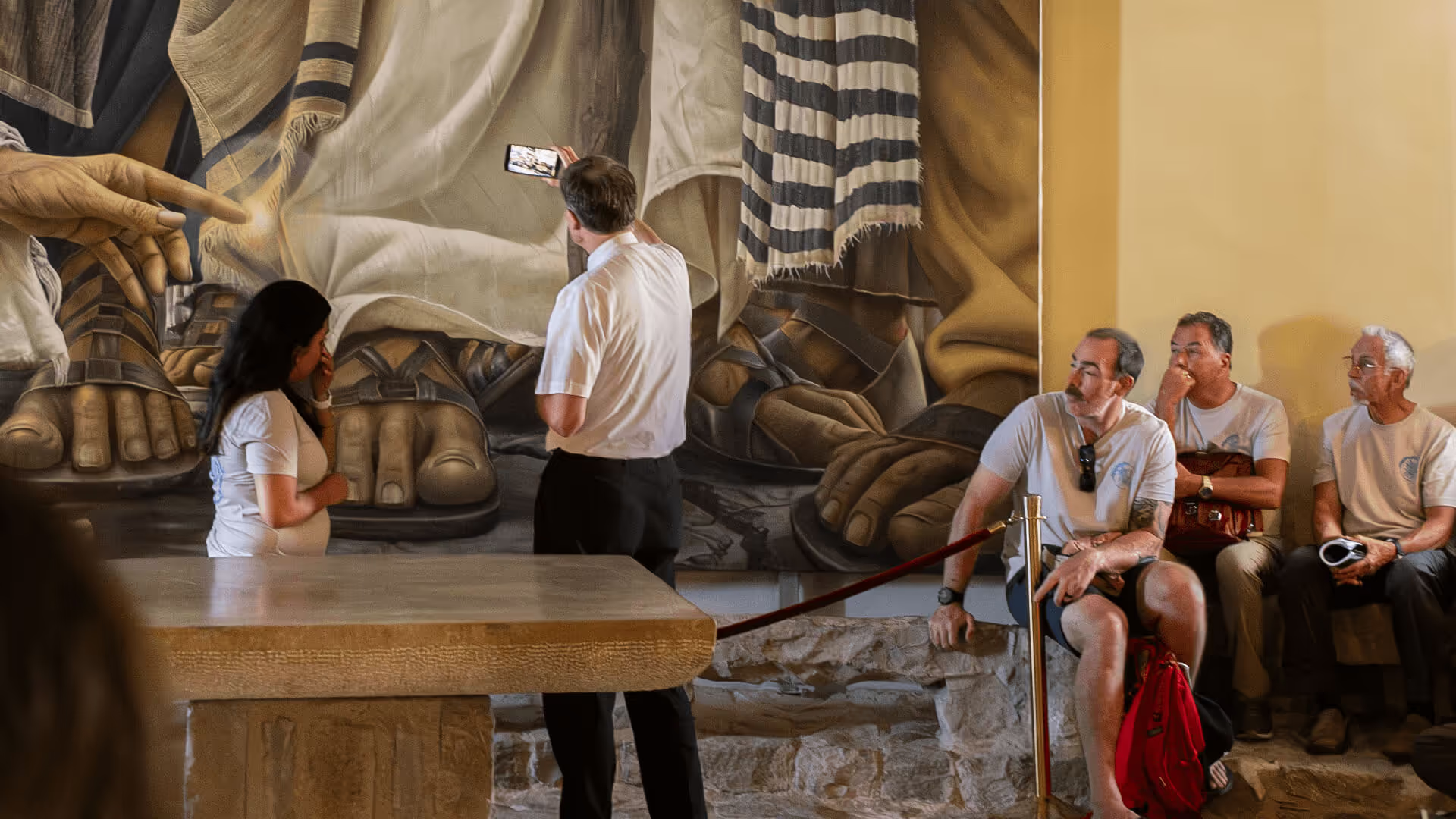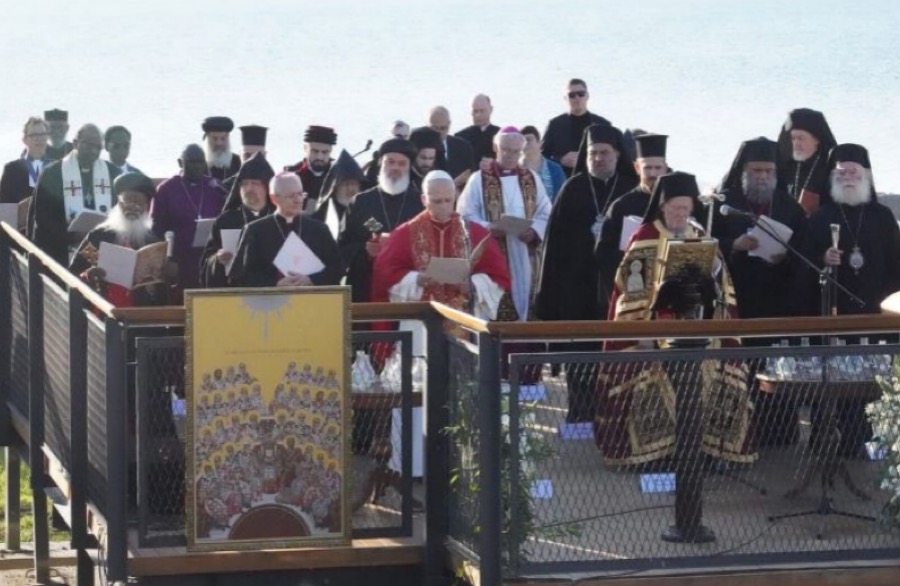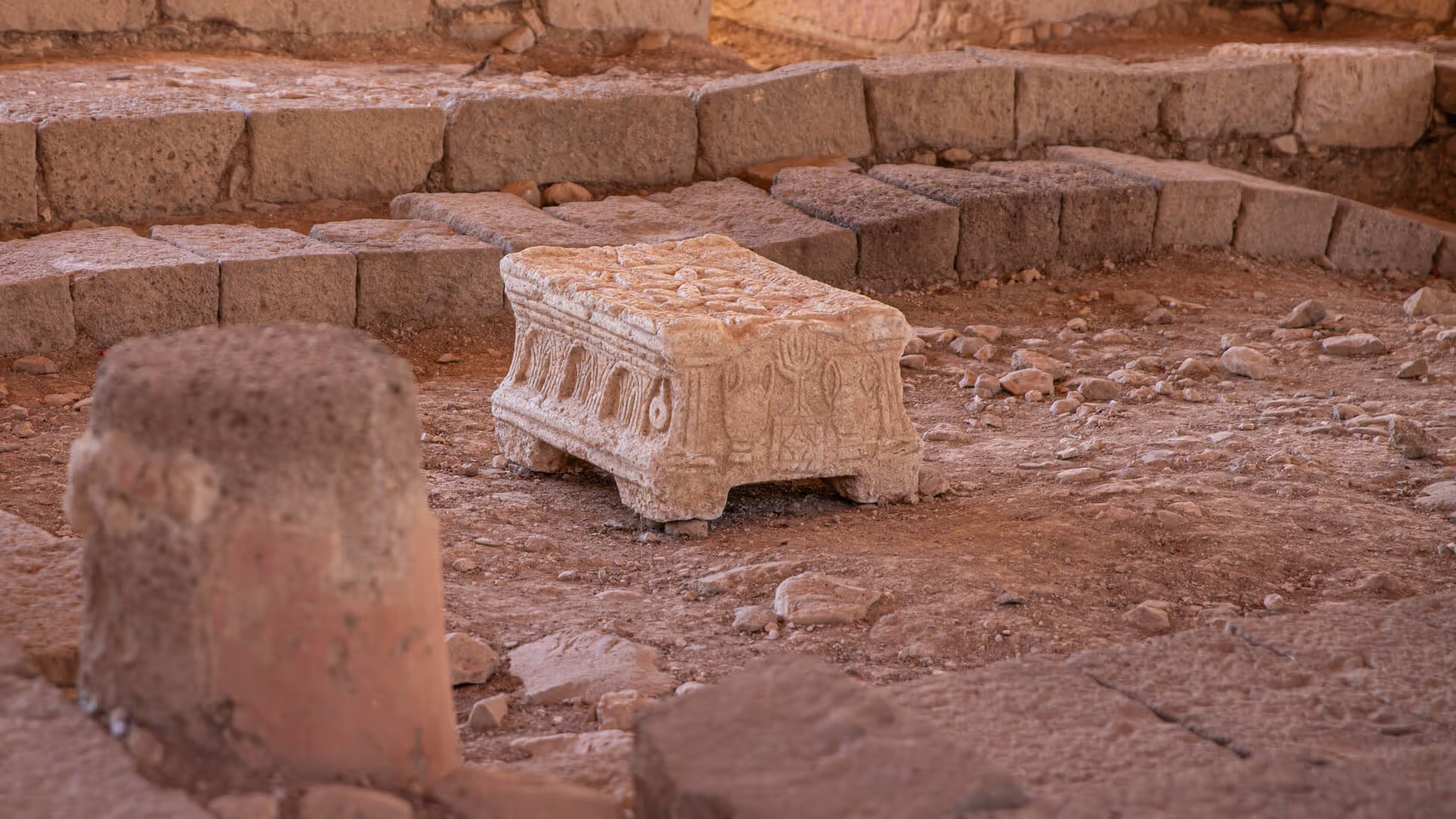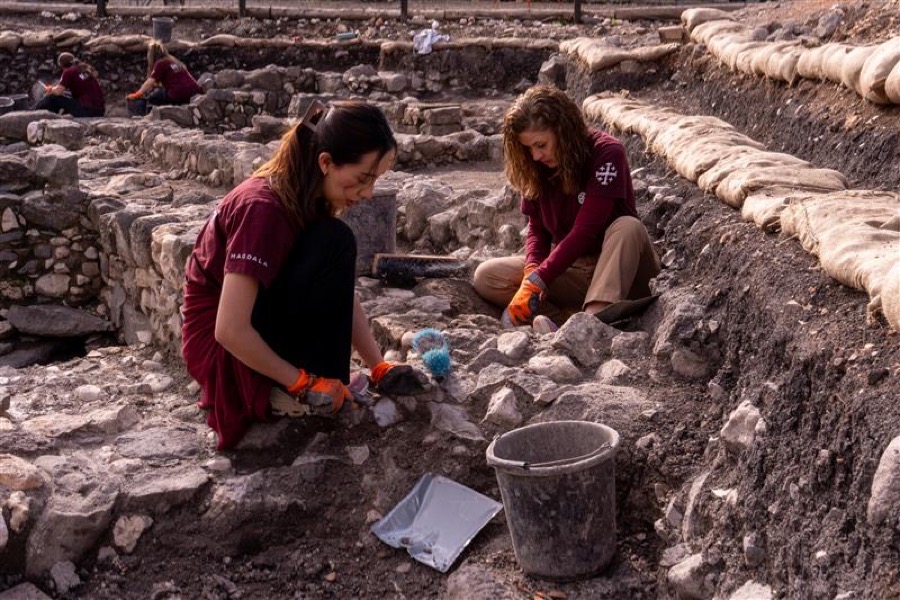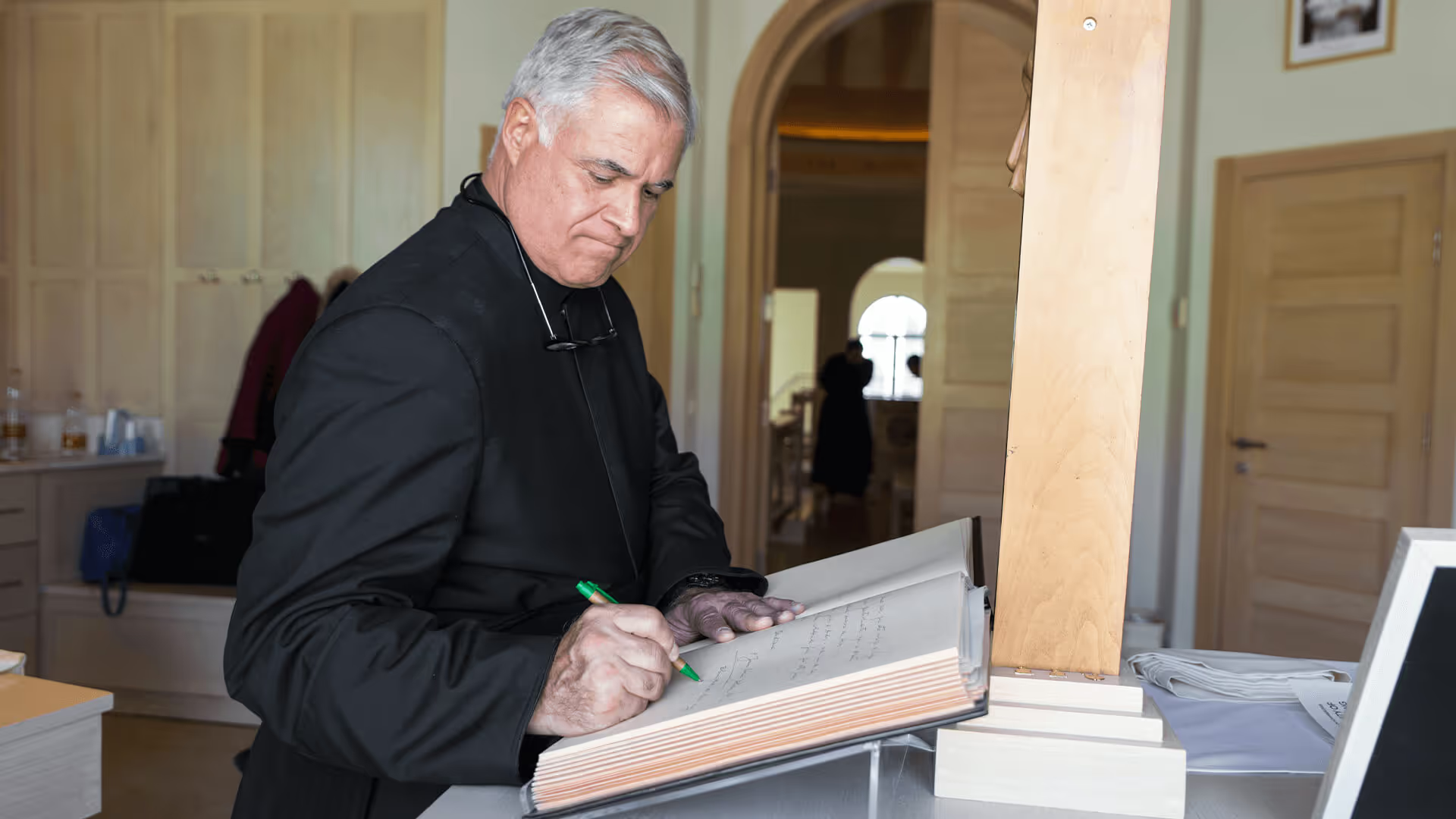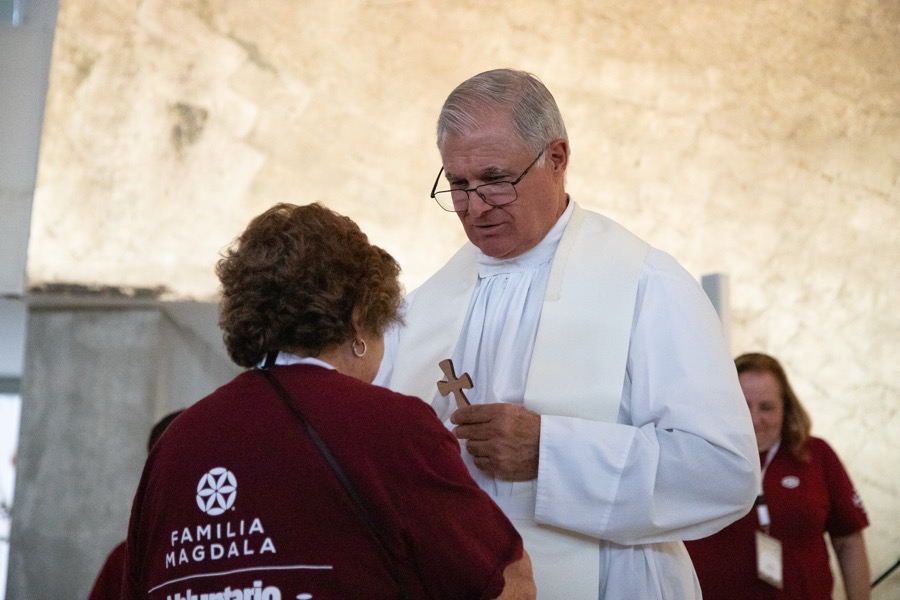Our religious calendars these past weeks made us aware of each other’s traditions. At Magdala we held an Iftar for all our Muslim workers and their families during Ramadan and a shortly before Holy Week, a toast for Pessach, the Jewish Feast of Passover.
For us Christians, moreover, this Holy Week and Easter have been very special. Eastern and Western Churches celebrated Easter on the same date. While this brought the great blessings of celebrating together, many events were very crowded in Jerusalem, both in the narrow streets of the Old City and the tight spaces such as the Upper Room, Gethsemane and The Holy Sepulcher. Despite the downside of the overcrowded circumstances, many people have expressed delight in being together in all our diversity, celebrating what we share, alongside one another: the triumph over evil and death by forgiveness and resurrection.
An Anglican lay leader was grateful for the suggestion to integrate their Capernaum – Jerusalem walking pilgrimage into the Palm Sunday procession with thousands of Christians from various spiritual families and Christian confessions.
The spirit of coming together caused great joy in a German Lutheran couple who later came to Magdala and related that they never had done something like their Way of the Cross on the Via Dolorosa on Good Friday in a group comprising Lutherans, Presbyterians and Anglicans. Obviously, meaningful celebration together of such moments requires certain commonality of language. But even when language diversity impeded celebrating together, with Greek or Russian Orthodox for example, the very fact of this togetherness in the same space, on the same day, evidenced our unity of faith in manifold expressions.
Sharing the same significant spaces to celebrate the same mysteries of our faith in the same places and on the same dates strengthens our awareness of how much we belong to each other. Following an observation by Pope Paul VI, October 18, 1964, and developed since then by his successors, Pope Francis evoked our even more compelling oneness in our shared persecution: “Today, dear brothers and sisters, we are living an “ecumenism of blood” This must encourage us to do what we are doing today: to pray, to dialogue together, to shorten the distance between us, to strengthen our bonds of brotherhood.”
Remembering POPE FRANCIS, WITNESS TO WHAT WE SHARE
When Pope Francis, who completed his time in this world on Easter Monday, came to Jerusalem in May 2014 he arrived at the Western Wall with two friends, Sheikh Omar Abboud and Rabbi Abraham Skorka. I also had the joy of conversing with both at Notre Dame. (On a later occasion it would be my privilege to guide Rabbi Skorka in Magdala when he surprised us one day).
Pope Francis’ gesture was highly symbolic but also tangibly real and genuine. They had worked together in Argentina for many years. They were friends. How beneficial it would be if we all cultivated real friendships with people who differ from us in significant ways. Just as we frequently appreciate our homes more after time away, we grow in appreciation for others while treasuring and maturing our own identity more deeply.
This fraternal interfaith action further underscored a common phenomenon in Pope Francis’ leadership style. Frequently we physically saw him living the message he was presenting to the world’s attention. We all desire peace and reconciliation with others. We benefit from the challenging exercise of encountering and sharing our lives and experiences with others who are quite other. What a gift for humanity when we help others, especially children and grandchildren, to appreciate and experience what this entails and how it enriches us all.
There was plenty of room for bilateral encounters where specific issues would best be advanced between two parties who shared concrete interests. For instance, Pope Francis and Grand Imam Ahmed el-Tayeb of Al-Azhar University signed the "Human Fraternity" document in Abu Dhabi in February 2019.
This groundbreaking declaration promotes interfaith dialogue, mutual respect and peaceful coexistence among different religions. It emphasizes the importance of rejecting extremism and advocates for religious freedom and human dignity. On the other hand, the encounters between Jewish groups and Pope Francis have been numerous, with varying emphasis according to the nature and purpose of the diverse groups and associations, for example his letter to To Jewish Brothers and Sisters in Israel Combatting antisemitism has often been a shared objective. The pope and a rabbi and an imam visit the Western Wall together signaled the lifestyle and attitudes our world needs more than ever.
Another inspiring surprise for us all was Pope Francis’ personal friendship with evangelical pastors whom he invited to address significant events such as large Pentecost gatherings in Rome. Later events at the World Youth Days followed this model. He also facilitated recognition of an evangelical community in Italy which had apparently experienced less than optimal respect from some Catholic neighbors.
Words such as ENCOUNTER, DIALOGUE, CLOSENESS, TENDERNESS and COMMUNION frequently articulated Pope Francis’ encouragement toward all the various political, cultural and religious sectors. He advocated that we face the challenges of the marginalized people together and take care together of our common home on our planet Earth. In the Christian arena, he inspired us Christians with our diverse confessions to walk in unison, serving the needy at our side. How mightily this practice undoes mutual prejudice and fosters mutual friendships.
Many of his teaching documents include ecumenical and interfaith approaches and exhortations. Teaching and action went hand in hand for him.
His visits to Lampedusa to meet refugees and to decry that the Mediterranean had become a massive cemetery convoked the entire European polity to awareness and actions to address the causes and consequences of dysfunctional systems across entire regions in need of major overhaul. He also came close to needy people in very personal ways such as surprise phone calls, prison visits, and numerous thank you gestures, while never hiding his own weakness. He entered the world stage sharing his need for our prayers and exited his life visiting St Peter’s Basilica in the simple house clothes of a patient in convalescence. We felt our universal, human vulnerability, our ultimate commonality where we human beings all meet.
It was striking for me to experience how many non-Catholics have written to me expressing their condolences on my social media posts or in personal messages. Other companions and many rank-and-file Catholics have remarked similar impact. This welcome reaching out is so beautiful and warm. Many people have apparently noticed our human need for closeness, tenderness, encounter and communion. Our hope that the immense sufferings plaguing humanity are not the endgame is renewed. We desire, and are capable of true humanity in our everyday actions and understanding.
Get to Know...

Sveta Furlander
Reservations Manager
Sveta Furlander was born in the Ukraine to a Jewish mom and a Christian dad.
After the Soviet Union fell and at the end of the Gulf War her family moved to Afula, south of Nazareth, and eventually to Hadera, on the Mediterranean. While still eleven years old she lost her dad to brain cancer. When Sveta finished high school in 2007, she enlisted for her 2 years military service as a medic and veterinarian assistant in the canine unit, interestingly dubbed the K-9 Unit.
Afterwards she worked for the Celcom phone company as a technician repairing phones. A good friend, noticing her people skills, encouraged her to learn more languages and enter the hotel sector. She already knew Russian, Hebrew and English. Now she speaks Portuguese, Spanish and Italian from watching TV. In 2011 she moved with her former Ukrainian Jewish husband to Kibbutz Degania B in the Jordan Valley and began her BA in Hotel Management at Kinneret College which she completed in 2016 while being employed in hotels.
It was intriguing to discover why she also became fluent in Hebrew sign-language. At the first hotel she welcomed a family whose little son could speak but both parents were deaf and dumb. His linguistic skills were insufficient to relay all the details she wanted to convey so they could optimally enjoy their stay. Sveta realized she must learn sign-language and became proficient with some Zoom courses over six months. Due to lack of frequent real-life practice, she does refresher courses and thinks this language option should be provided in schools: “unless we speak sign-language, a whole world remains unreached!”. She observes that they tend to avoid hotels because they don’t get easy accommodating service
Sveta can’t explain Magdala’s peace and serenity. “You come here, and you feel better!”.
Her pride and joy is Ayala, her eight-year-old daughter.
Discover more articles from this category
